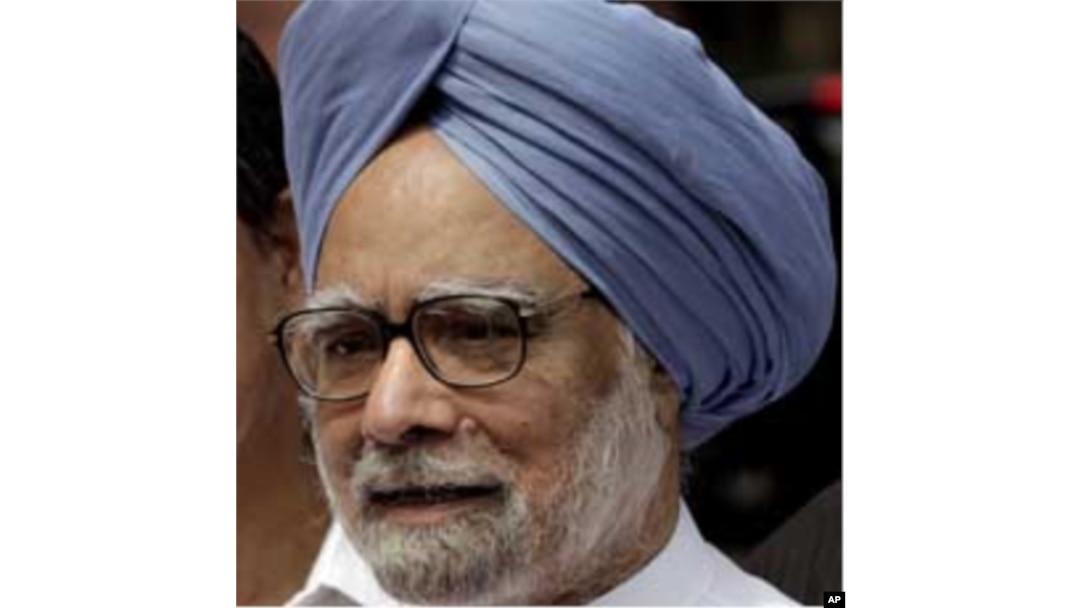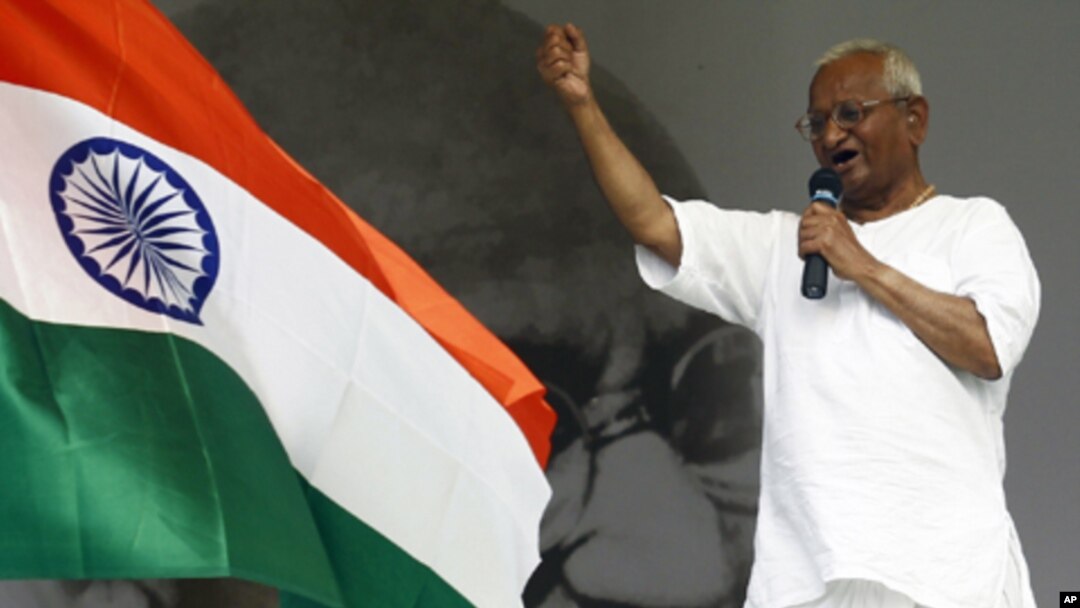Indian Prime Minister Manmohan Singh is appealing to a prominent anti-corruption activist to end his 10-day hunger strike, while urging lawmakers to consider all options to make India corruption free.

India's PM Urges Anti-Corruption Activist to End Fast
Mr. Singh told parliament Thursday he wants his government to debate all reform proposals, including the one championed by activist Anna Hazare. The prime minister praised Hazare, saying that he respects the 74-year-old activist's idealism and that his life is "too precious" to waste.Earlier this month, the Indian parliament proposed the creation of a civil institution, known as a lokpal, to reduce the country's endemic corruption. Hazare opposes the bill, saying it would not hold many government officials, including the prime minister, or the judiciary accountable for corrupt practices.
Hazare responded to the prime minister's comments Thursday, saying he will break his fast only if parliament begins discussing his anti-corruption proposals on Friday. The proposals include the demand that low-level bureaucrats be subject to graft probes.
The activist has been encamped in an open-air venue in New Delhi with thousands of supporters. Hazare began fasting in support of tougher anti-corruption legislation on August 16.
Senior government ministers have held talks with Hazare's aides, but little progress has been made so far.
In the meantime, Mr. Singh's government and members of the opposition have urged Hazare to let doctors feed him intravenously, but the activist has refused.
On Wednesday, Hazare told supporters he has lost six kilograms and that his kidney is affected but that they should not worry. His hunger strike has triggered huge anti-corruption protests throughout India.
Popular outrage over corruption has grown steadily in India over the past year, as a series of high-profile corruption scandals has made national headlines. They include the sale of telecommunications licenses at below market value and numerous financial irregularities in India's hosting of the Commonwealth Games last year.


